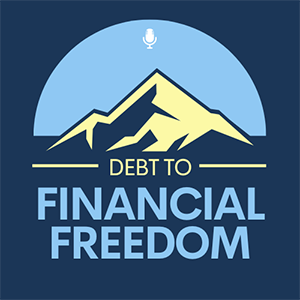In this article, we’ll explore five things you need to stop doing immediately to get your finances in shape.
Spending Money Impulsively
Impulsive spending can be a major roadblock to achieving financial stability. Whether it’s buying a new gadget or splurging on a luxurious vacation, impulsive purchases can quickly add up and deplete your savings. To avoid falling into this trap, it’s important to create a realistic budget and stick to it. Plan your spending in advance and think twice before making any purchases that are not necessary. Something that has worked really well for me is understanding delayed gratification instead of instant gratification. When you really want something and you put money away each pay day to eventually buy it, the satisfaction lasts longer because you’re looking forward to it – the anticipation builds up. Then, when you buy it outright you can feel happy knowing it was all within your budget.
Conversely, when you buy impulsively, the instant gratification can turn into remorse when you realise you needed that money for something you forgot about such as car registration or a new fridge when your old one breaks unexpectedly. Start small and train yourself to get better with delayed gratification – your future self will thank you for it!
Ignoring your Budget
Not having a budget is like driving without a map – you don’t know where you’re going or how you’re going to get there. If you think you don’t need a budget then can you honestly ever know how much money you have in your current account, savings, emergency fund etc? A budget will help you track your expenses and make sure you are spending within your means. There are so many great apps and ways to track your money these days (a lot provided by the banks themselves) that there really is no excuse. It’s a great way to take control of your finances and ensure you are on track to achieving your financial goals.
To keep it simple, start with a piece of paper and print out the last 3 months of transactions and highlight into categories such as bills, groceries, going out, and spontaneous. Then you can work out how much you want to spend moving forward. Remember the budget can be updated until you find the sweet spot where you stick to a budget that lets you do what you want to do AND still save for future investments and other large expenses in the future. A great app to track your upcoming bills is called TimelyBills so you always leave enough money in your bank account to cover the bills due between pay days.
Using Credit Cards Recklessly
Credit cards can be a convenient and effective way to manage your finances, but they can also be dangerous if misused. If you are not careful, credit card debt can quickly spiral out of control (believe me, I’ve been there!) and put you in a difficult financial situation. To avoid falling into this trap, it’s important to pay off your credit card balance in full each month and avoid using credit cards for unnecessary purchases. If you want to hear my personal story of credit card debt and how I managed to pay it off, listen to my podcast episode. Remember if you want to buy a property, having high credit card limits can also negatively affect your borrowing capacity. I recommend only having 1 credit card with a low limit no more than $6k if you are disciplined enough to clear the balance in full every month. If you have to pay interest on the credit card, then you are better off using a debit card until you are managing your money well enough to never pay interest.
Failing to Save
Saving money is an essential component of financial stability, yet many people fail to do so. Whether it’s because of a lack of motivation or an inability to stick to a budget, failing to save can have serious consequences for your financial future. To avoid this, it’s important to start small by setting aside a portion of your income each month, and gradually increasing the amount as your finances improve. The concept of paying yourself first really works here and the better habit you can get into of putting money aside before it even hits your spending account is one of the best things you can do for your financial future. Salary sacrificing is a great way to boost your savings (and reduce your tax liabilities). I personally automate my savings by having another high interest earning bank account with a different bank to where my salary is deposited. I also work off the 10% of my net income rule to pay myself first into this account. When it’s out of sight from netbanking, you don’t see it available and are not tempted to use it for something else. You will be surprised how quickly it builds up. At one point I automated 40% of my income towards savings by reducing my other expenses and sticking to the budget. This is how I was able to save over $100k to purchase my first investment property. I talk about this in more depth on my podcast, check it out here.
Neglecting Retirement Planning
Retirement may seem far away, but it will arrive sooner than you think. Neglecting to plan for retirement can put your financial future at risk and leave you struggling to make ends meet in your golden years. My personal pain around this is proof that it can happen to us all (check out my podcast episode to get the full story).
To avoid this, it’s important to start planning for retirement early and make regular contributions to a retirement account, such as a superannuation fund (and see point 5 above about salary sacrificing into your super account). Financial Freedom means you have enough income to do what you do without working. Planning for retirement means building a passive income money machine to earn money even when you sleep. Remember retirement can be sooner than you think and it doesn’t have to mean you don’t work, it just means you can work because you want to work and not because you have to work to survive.
In conclusion, these five things can be major roadblocks to achieving financial stability, but by avoiding them and making small changes, you can get your finances in shape and set yourself on the path to a secure financial future. Whether it’s creating a budget, using credit cards responsibly, saving regularly, or planning for retirement, taking control of your finances is a journey worth embarking on. Start today and take the first step towards a brighter financial future!
Want to check in with a broker who will listen to your situation and find the best solution to help you achieve those financial and property dreams? I’m here to help – book a call with me here.







